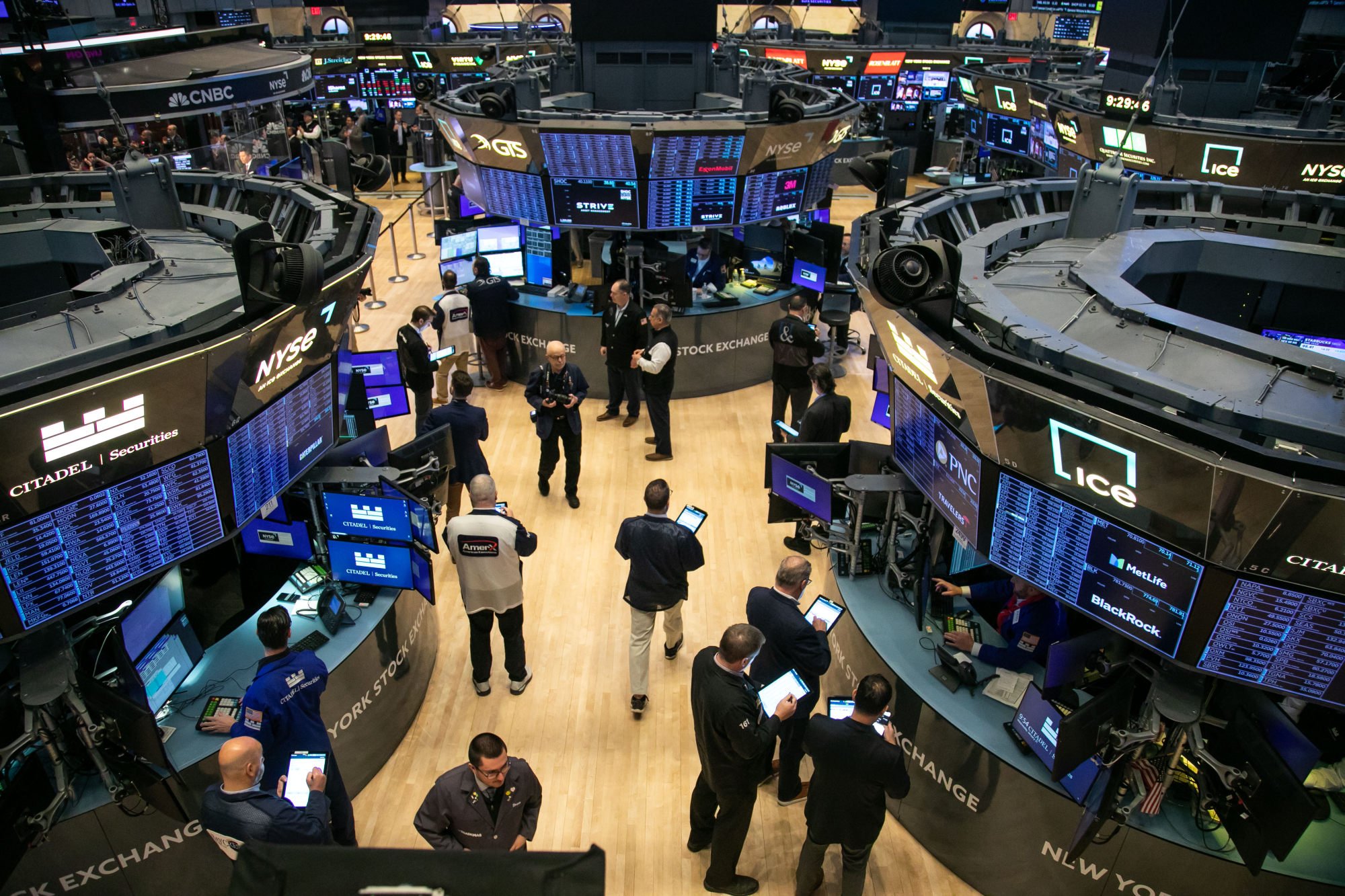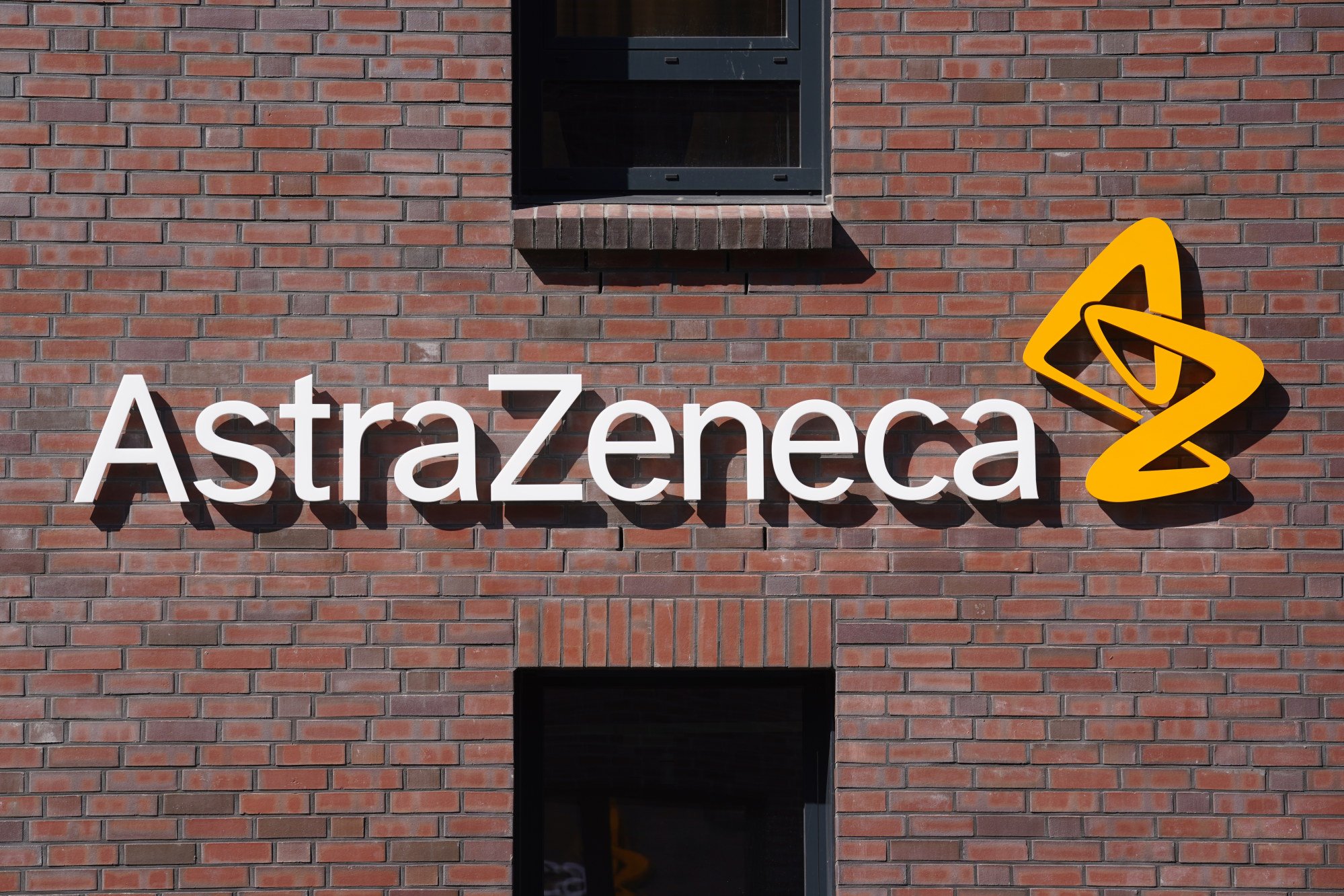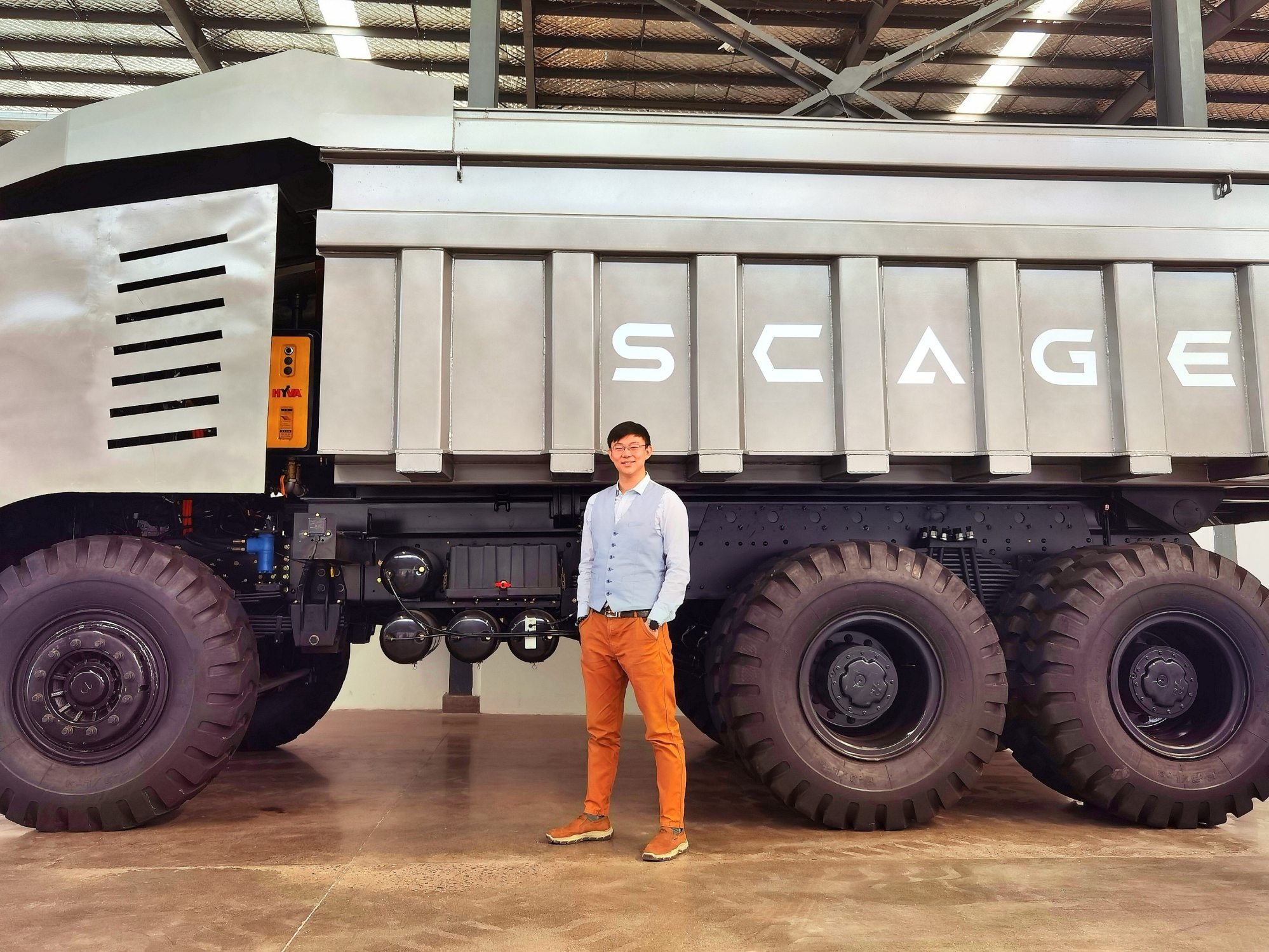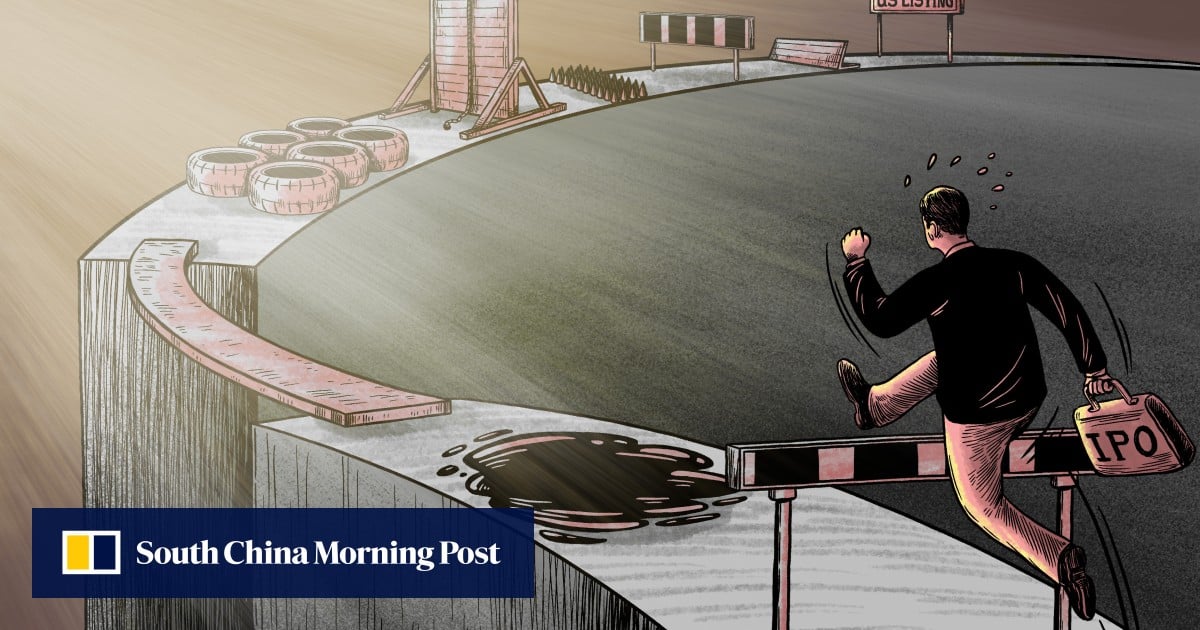Less clear is whether the largest, most attractive Chinese companies want to navigate the shifting maze of impediments for a US listing – and how interested foreign investors are.
“Since Didi Global in 2021, there have been few notable Chinese listings on US exchanges,” said Matthew Kennedy, a senior strategist with IPO research firm Renaissance Capital. “Now that the US IPO drought is ending, the question is: Will large Chinese companies return?”
Beyond economic and regulatory shoals, Chinese firms must weather strained US-China relations as turf battles and geopolitics assail the financial sector.
Didi to start trading on OTC market after delisting from NYSE
Didi to start trading on OTC market after delisting from NYSE
Investors say the focus ahead is on relatively sure-bet Chinese companies with believable numbers and known brands. While Wall Street memories are relatively short, once-burned financiers seek assurance that an IPO will not tank soon after listing.
Between 2019 and 2022, the share price of Chinese IPOs on US exchanges fell 71 per cent from their opening, compared with a 16 per cent drop for non-Chinese issuers, according to Renaissance.
“I’ve never heard of a Wall Street banker turning down a dollar,” said James Hinote, geopolitical officer at CGPA Global Advisors. “But they need to have their fundamentals and their value down while not treading on any potentially sensitive topics like dual-use technologies or connections” with the Chinese military.
Amer Sports, a subsidiary of Jinjiang-based Anta Sports that owns Wilson, Arc’teryx and other iconic brands, provided an early test. Despite lowering its IPO price last week, NYSE investors remained unenthusiastic, resulting in a US$6.5 billion valuation compared with an earlier US$8.7 billion estimate.
Hopes are now pinned on online fast-fashion retailer Shein and EV maker Zeekr, respectively valued at a potential US$90 billion and US$13 billion – assuming they are not discounted as well.

Chinese companies are lining up at US exchanges, at least numerically. Last year they accounted for 21 per cent of US IPOs – excluding deals under US$5 million – raising a combined US$528 million. While slightly above 2022 levels, this paled against 2021’s US$12.6 billion.
But Wall Street prefers mega-deal “whales” that boost trading revenue over schools of minnows; last year, Chinese companies only accounted for 3 per cent of total capital raised, with 2024 likely to follow suit.
‘It’s going to be a very ‘separating the wheat from the chaff’ year for small caps in China,” said Marc Iyeki, head of listings strategy at Green Impact Exchange, which promotes corporate sustainability.
“It’s getting harder to list overseas and harder to get debt and foreign direct investment needed to grow medium-sized companies.”
As US-China tensions have increased, Beijing initially steered its companies to Chinese exchanges, in part by streamlining listing requirements.
From the company’s standpoint, the US is the only market in the game
“Using some combination of carrot and stick, China has encouraged more domestic listings,” said Kennedy.
But IPOs thrive in bull markets. And even as US exchanges post record highs, China’s remain anaemic.
This includes limits on short selling – a way to profit when share prices fall – and arm-twisting state-owned enterprises to buy stocks and prop up markets. This week, Chinese stocks partly rebounded on word that President Xi Jinping would be briefed on the rout.
Faced with a capital squeeze at home, and fear that more domestic IPOs could further depress prices, Beijing has grudgingly allowed Chinese companies to raise funds in New York – if they can.
Beijing exchange’s IPO volumes weather China’s stock market storm
Beijing exchange’s IPO volumes weather China’s stock market storm
Last year, the China Securities Regulatory Commission approved 72 New York or Hong Kong listings – it did not provide a breakdown – while the PwC auditing firm estimates that some 220 companies will list on China’s A-share market this year, down a third from 2022.
“I feel bad for the capital market operators in China,” Kevin Chen, an economist and adjunct professor at New York University, said. “They’ve tried very hard to avoid the US but realised it was such a disastrous strategy.”
This relative shift in the financial power balance has also seen the US up the ante.
In 2022, amid battered US-China relations and more shaky Chinese IPOs, a long-standing concern, Congress passed legislation requires any US-listed company to open its books and meet US financial standards over three years.

“We had an impasse between regulators and a pressure to negotiate and both sides wanted to leverage these negotiations,” said Hinote.
“It would have been basically catastrophic from a financial standpoint for these companies, but also for China’s image, that they were booted out of the US markets,” said Arthur Kroeber, a partner with Gavekal Research. “That was intolerable for them.”
The Public Company Accounting Oversight Board, a US watchdog, soon reported evidence of false auditing reports and cheating on exams, leading to a US$7.9 million fine against three China-based firms and four individuals. “The days of China-based firms evading accountability are over,” Erica Williams, the board’s chair, declared.
Annoyed by US sanctions and the US dollar’s enduring international clout, Beijing has also encouraged European listings for Chinese firms, in part by creating a preferential arrangement with Switzerland.
Xi Jinping’s ‘financial superpower’ goal for China spurs scramble for resources
Xi Jinping’s ‘financial superpower’ goal for China spurs scramble for resources
But Europe is increasingly wary of Beijing over its support for Russia’s Ukraine invasion and China’s EV push into European markets. And Swiss and broader European exchange liquidity have greatly lagged their US counterparts.
Moreover, many Chinese companies prefer to list abroad, especially New York, given the size, financial expertise, prestige and ability to invest, for example, in a Vietnamese factory without navigating Chinese restrictions on moving money abroad.
“From the Chinese government point of view, they didn’t want their existing companies to be kicked out,” Kroeber said. “But I don’t think they’re really enthusiastic about companies getting the idea that they have to invest in the US in the future.
“The problem is that, from the company’s standpoint, the US is the only market in the game.”
Priority companies related to defence, hi-tech and national security can tap state funding, but this often comes with more strings attached than foreign start-up financing. Beijing may also want to safeguard its capital as local debt problems mount, Hinote said.
In another sign that China is reluctantly accepting, at least temporarily, a larger role for foreign capital, Anglo-Swedish pharmaceutical giant AstraZeneca reached a deal in December to buy Grecell for some US$1.2 billion, the first-ever foreign takeover of a Chinese biotech company.

“The fact that it got a green light is a very positive development,” Chen of NYU said. “The regulators in China were just ‘no, no, no’. Now they realise they have to act.
“Companies are probably saying to the government, ‘if you give me US$1.2 billion, I’ll stay here. Otherwise, our shareholders would prefer to cash out’.”
Amid calls to “decouple” as both sides increasingly conflate national security and economic security, some believe financial logic will prevail.
Others see a growing risk that Washington, particularly Congress, will try to exploit China’s current economic weakness for strategic advantage. They anticipate closer scrutiny of companies’ Uygur labour practices as well as calls to restrict US equity funds from investing in dual civilian-military Chinese companies, particularly if former president Donald Trump is re-elected in November.
“Countries leverage their power, and one of the US powers is financial,” Iyeki said.
‘Mistrust remains high’: why half of US firms have no plans to expand in China
‘Mistrust remains high’: why half of US firms have no plans to expand in China
Few see much hope of US-China financial distrust easing any time soon. “How sad it is that earlier, Chinese companies were engaging with US investors, learning to play somewhat by international rules,” said James Shapiro, a consultant and former NYSE representative in Asia. “And now there are increasing divisions.”
Following the awkward Didi IPO reversal, and Beijing’s push to safeguard Chinese data, China last year started requiring approval to list abroad even as US auditing standards toughened.
This ultimately could ensure that fewer, more substantive Chinese companies list abroad, some say, improving global markets overall as companies increasingly compete under the same rules.
For Guo of Scage, securing US capital by June is central to his dreams. Following eight years on Wall Street, he decided to join three other co-founders in starting the company: “You have just one life, try something new.”
Scage produces “Dragon King” and “Galaxy II” electric-, hydrogen- and diesel-powered heavy-duty trucks for mining, seaports and general hauling, including exports to Egypt, Thailand and Britain. It also produces a driverless version that he said was safety-tested.

The company hopes to raise funds through a special-purpose acquisition company, or SPAC, a way to “reverse list” using a shell company that involves less oversight than traditional IPOs. SPACs have seen abuses, including those involving Chinese companies. Last week, US regulators said they would tighten their disclosure rules.
Guo maintained that Scage is financially solid and can make the SPAC structure work. The company had 2023 revenue of 120 million yuan (US$16.6 million) and aims to hit 500 million yuan this year, he added.
Starting and financing the company are steps one and two of 100 needed to build a century-old company, he said – assuming geopolitics cooperate.
“I hope the relationship between China and the US goes back to what it was before,” Guo said, before taking a deep breath. “I pray.”
